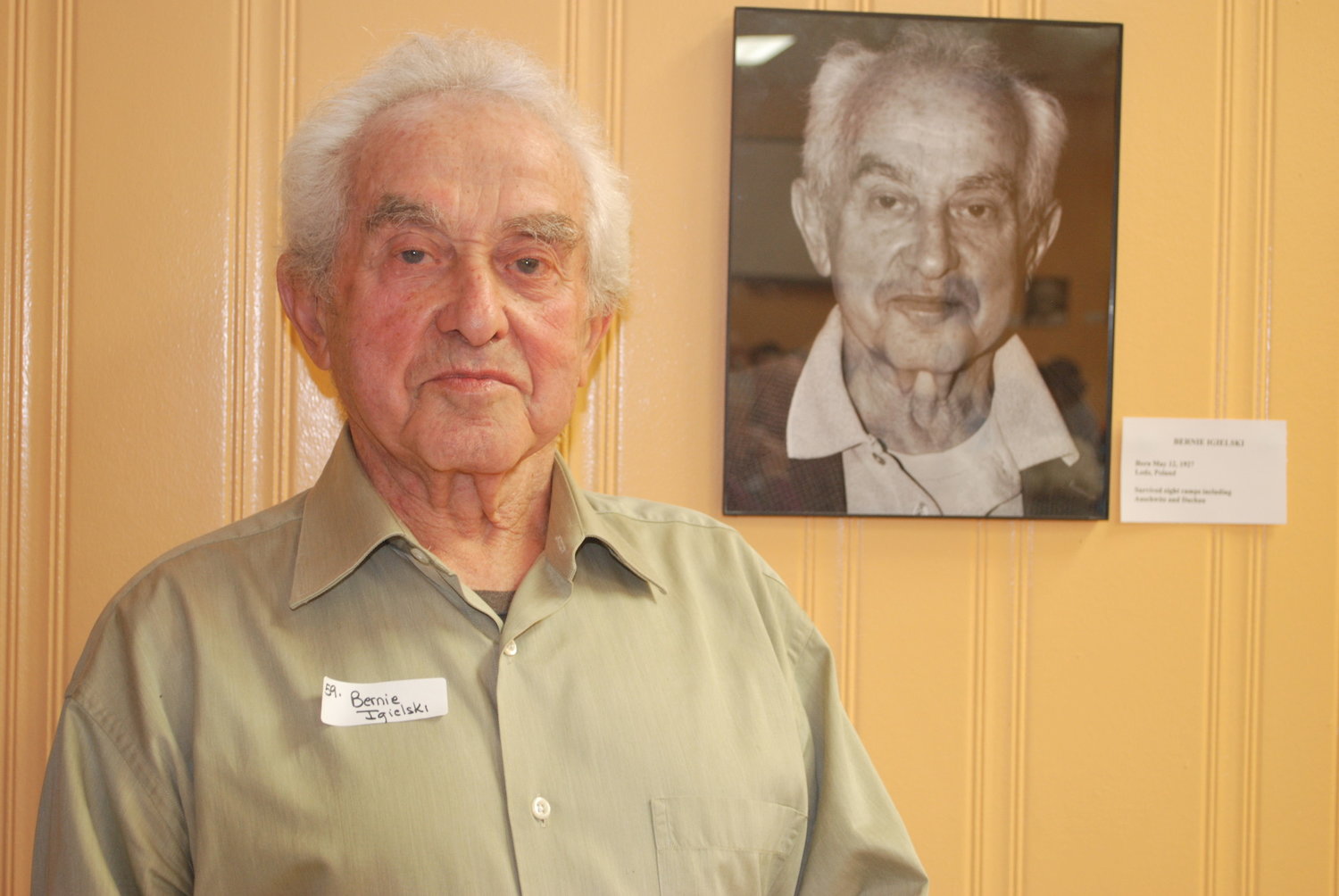Commemorating the Holocaust amid the pandemic
Survivor Bernie Igielski shares his message of positivity
Despite not being able commemorate Holocaust Remembrance in person because of the coronavirus pandemic, the Marion & Aaron Gural JCC and the UJA-Federation of New York found a way to have a Holocaust survivor share his story.
North Woodmere resident and Gural JCC member Bernie Igielski, 93, recalled his story on April 21 on how he always looks for the positive in people. Cathy Byrne, the JCC’s associate executive director for older adults and special needs, hosted the discussion that was presented on the Zoom video conference platform.
“Today on Yom HaShoah, we must always remember to stand up and speak against hatred,” Byrne said. “We also must remember to share our survivors' stories even in the face of these unprecedented times.” Yom HaShoah is Hebrew for Holocaust Memorial Day.
The day is commemorated in the United States and Israel on a day corresponding to the 27th day of Nisan on the Hebrew calendar. It marks the anniversary of the Warsaw Ghetto Uprising in 1943, when Jewish residents battled Nazi forces for nearly a month that April and May. German soldiers crushed the 27-day resistance, yet it remains a symbol of Jewish courage. This year, Yom HaShoah was April 21.
Born in 1927 in Brzeziny, Poland, Igielski’s life dramatically changed as a 12-year-old when the Nazis captured his hometown in 1941. “In a matter of just three days, the Germans occupied our town,” Igielski said. “I was in eight concentration camps during the Holocaust and it was very difficult seeing people dying right next to me.”
Igielski was liberated from Auschwitz in May of 1945 and noted that despite all the horror he witnessed during the Holocaust, he always tries to see the good in people. “I don’t believe in hate,” he said. “If you can look in the mirror and love yourself, then you cannot hate.”
After liberation, Igielski spent more than three years in Germany, living with a German family. He moved to the U.S. in 1948 and served in the Army during the Korean War.
“The memory of the Holocaust is fading as the survivors offering firsthand accounts are in their 80s, 90s and older,” UJA-Federation of New York CEO Eric Goldstein said before Igielski spoke. “The need to remember to truly ensure never again has taken on an obligation to never abandon the survivors around us.”
Sharing his experiences with others, including fellow Holocaust survivors is what Igielski said still gives him life. “I kept all the bad memories to myself as I thought it was something I had to deal with on my own,” he said. “Since I started coming to the JCC, speaking with other survivors gives me hope for tomorrow. I miss seeing them all right now.”
Support journalism, go to https://www.liherald.com/heraldsupport.html

 50.0°,
Overcast
50.0°,
Overcast 




